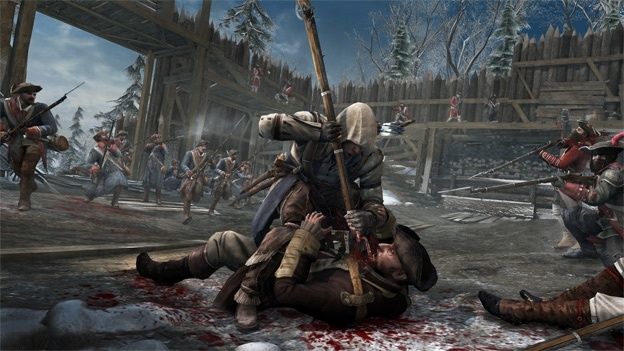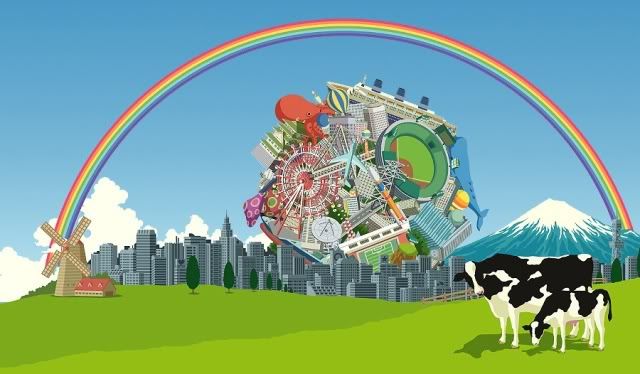This post has not been edited by the GamesBeat staff. Opinions by GamesBeat community writers do not necessarily reflect those of the staff.

Alex Hutchinson, creative director of Assassin's Creed 3, recently went on record as saying, "We're the last of the dinosaurs …. We're still the monster triple-A game with very large teams [and] multiple studios helping out on different bits. There are fewer and fewer of these games being made, especially as the middle has fallen out."
Now, his perspective is obviously biased. I would never call Assassin's Creed 3 the last triple-A title, not even close; however, I look at the world of gaming as a whole and take something into consideration: Can we really keep this up?
I say this first with earnestness that unfortunately cannot be properly transcribed to the Internet: I am not writing this out of a need to fearmonger or to shock or for any other negative reason. I speculate now to achieve an aim: to go forward into the future with eyes open.
I've commented in the past that triple-A games aren't inherently good or bad, but when so many resources and so much humanpower gets funnelled into a game, the consequences of success or failure increase manifold. There have always been last ditch gambles, like Square's Final Fantasy and Tecmo's Dead or Alive, each franchise so named because if they hadn't found success, they would likely have been their respective companies' last endeavours. Still, these days we seem to be reaching a threshold where even exceptional is no longer good enough.
When I make that comment, my mind is going to the fate of Radical Entertainment, which saw closure this year after Prototype 2 failed to sell to expectations despite the fact that it was a well-received game that topped the best-seller list in the month that it debuted. While it is true that the sales for that month had decreased a drastic 42 percent, to think that having the top-selling game for the month would still result in the studio behind it being shut down is far from a comforting one. It's also hardly the only troubling sign I've seen as of late.
This year has seen THQ hit hard, and even giants like Electronic Arts are struggling and weighing their options. You can dismiss EA's recent woes to the idea that the company is not well liked among gamers, but there must be more to it than that, considering the success of titles like the Mass Effect, Dragon Age, and especially the Battlefield series. So what is happening here?
I believe that the answer lies in a one-two punch of ever increasing production costs and ever diminishing returns. It seems that these days a lot of mainstream titles have a choice: be a huge, unparalleled successes or fall by the wayside to make room for games that can be. The current climate seems more unforgiving then ever before, with little to no margin for error.

Not only is the current high-stakes way the industry works a problem for the big guns, but the small fries are going to suffer as well because of this. It's true that the indie scene is strong and continues to produce good, if niche, titles; what concerns me is the fate of games that have been great experiences in the past.
If we keep going, will we see titles like Shadow of the Colossus, Beyond Good and Evil, or more recently series like No More Heroes and Katamari Damacy? It's hard to speculate, but the more resources that the "next big" titles demand, the more unwilling studios and publishers will become to try and take a risk on anything that isn't a guaranteed hit.
Maybe I'm making a mountain out of a molehill. I hope I'm wrong. I really do. I don't think that this — even if it is as big a problem as I'm speculating it to be — will cause the industry to crash. What I do think is that this is going to cause everyone involved in gaming — from the big three to the major publishers to the developers to, yes, even us as well — to take a long hard look and reevaluate just what's important in games. Technology is great — amazing even — in what it can provide, but I think that perhaps it's come at a cost of losing some of the core premises of what make games great to play.
Perhaps it's just my cynical nature talking when I make the above comments, but I think that some introspection certainly couldn't hurt matters. If we can still have great games that don't need six hundred strong teams and budgets that are growing to rival and beat blockbuster film costs, then that can't be called a bad thing. This stands a precipitous moment. We're on the edge of the next generation after all. If the trends continue, then the technology will demand greater and greater investments, and while it may not prove completely untenable, it's certainly far from the best solution to the problem.
Will any of this come to pass? I certainly am in no position to say one way or another. I'd be lying if I told you that this train of thought didn't worry me greatly, and the reason for that is, of course, the fact that I care about games, they've been an integral part of my life, and I know I'm not the only person that considers that a truth.
Still, I believe that the paths we walk on are by no means set in stone, and perhaps this would even be a good thing … a new beginning? Again, I cannot say, but whatever the results are — even if there are none in particular — I will be sitting, watching, and playing.
